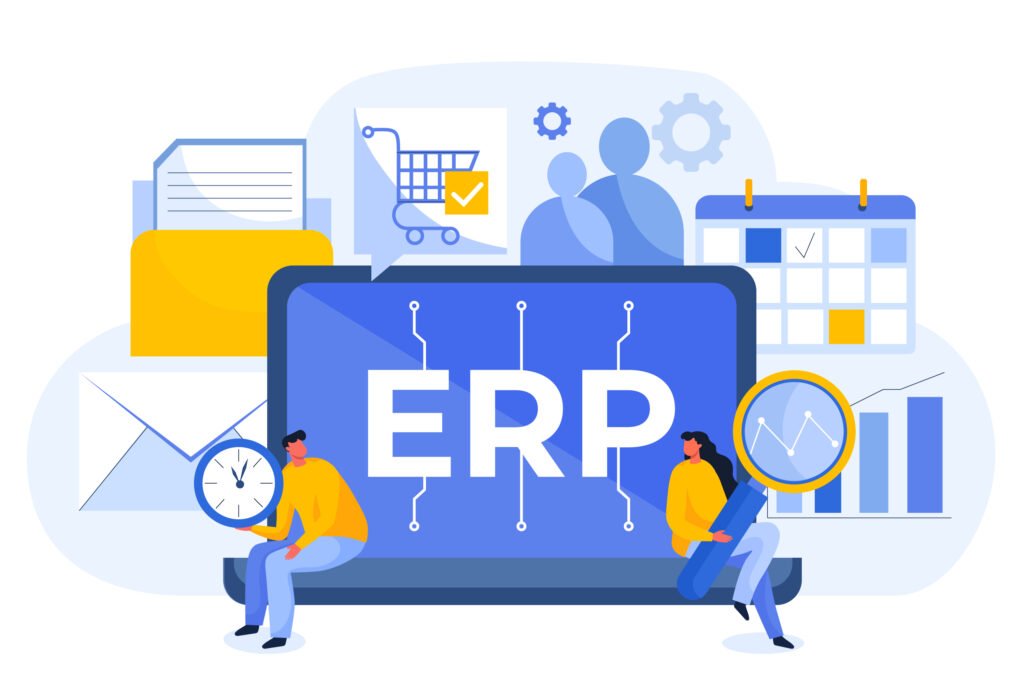In today’s data-driven world, customer relationships are more valuable than ever—and managing those relationships effectively can make or break your business. That’s why choosing the right CRM (Customer Relationship Management) system is one of the most important decisions you can make.
But with hundreds of CRM options on the market—each offering different features, pricing, and integrations—how do you know which one is right for your business?
In this guide, we’ll walk you through the key factors to consider when selecting a CRM that aligns with your business goals, team workflows, and growth plans.
What Is a CRM and Why Does Your Business Need One?
A CRM system is a software solution that helps businesses manage interactions with current and potential customers. It centralizes customer data, tracks communications, automates tasks, and improves team collaboration—ultimately helping you close more deals and deliver better customer experiences.
Key Benefits of a CRM:
- Organize and access customer data in one place
- Track sales pipelines and customer touchpoints
- Automate follow-ups, emails, and workflows
- Improve marketing and sales alignment
- Make data-driven business decisions
Step-by-Step Guide to Choosing the Right CRM
1. Define Your Business Goals and CRM Use Cases
Before comparing platforms, get clear on why you need a CRM. Are you trying to:
- Increase sales productivity?
- Improve customer retention?
- Streamline lead management?
- Gain visibility into your sales pipeline?
Pro tip: Create a list of must-have vs. nice-to-have features based on your goals.
2. Assess Your Team’s Size and Skill Level
Different CRMs cater to different types of users. For example:
- Small teams may need a user-friendly, plug-and-play solution like HubSpot CRM.
- Larger teams with dedicated admins may benefit from the customization power of Salesforce.
- Non-technical users may prefer simple interfaces like Pipedrive or Zoho CRM.
Choose a CRM that your team can adopt quickly with minimal training.
3. Set a Realistic Budget
CRM pricing can range from free to hundreds of dollars per user per month. Be sure to consider:
- Subscription fees
- Setup and onboarding costs
- Third-party integrations
- Hidden costs like data storage or API limits
Start with what you need now, but keep scalability in mind.
4. Check for Key Features and Integrations
Your CRM should support your daily operations and integrate seamlessly with your existing tools. Look for:
- Contact and lead management
- Sales pipeline tracking
- Email and marketing automation
- Reporting and analytics
- Mobile access
- Integration with tools like Gmail, Outlook, Slack, Mailchimp, or QuickBooks
If your team already uses platforms like Shopify or Zoom, check for native integrations.
5. Evaluate Customization and Scalability
As your business grows, your CRM should grow with you. Look for platforms that allow:
- Custom fields and modules
- Workflow automation
- Role-based permissions
- API access and advanced reporting
Avoid choosing a platform that limits you when your business expands.
6. Test the CRM with a Free Trial or Demo
Most reputable CRMs offer free trials or live demos. Use this opportunity to:
- Explore the interface
- Test key workflows
- Invite team members to provide feedback
- Evaluate support responsiveness
Hands-on experience can reveal deal-breakers that specs alone won’t show.
7. Review Customer Support and Community Resources
When you hit a roadblock, how quickly can you get help?
Check for:
- 24/7 customer support
- Onboarding assistance
- Knowledge bases and training materials
- Community forums or user groups
A supportive ecosystem can be a major advantage, especially for new users.

Popular CRM Options by Business Type
| CRM Platform | Best For | Price Range |
|---|---|---|
| HubSpot CRM | Startups and small businesses | Free – $50/user/mo |
| Salesforce | Enterprises and custom workflows | $25–$300+/user/mo |
| Zoho CRM | SMBs with global reach | $14–$52/user/mo |
| Pipedrive | Sales-focused teams | $14.90–$99/user/mo |
| Freshsales | Service-oriented businesses | $15–$69/user/mo |
Final Thoughts: Choose for Today, Plan for Tomorrow
Choosing the right CRM is not just about features—it’s about fit. The best CRM for your business is one that supports your current processes, improves team efficiency, and grows with your company.
Take time to evaluate your options, involve key stakeholders, and don’t be afraid to switch if your current CRM no longer meets your needs.
FAQs
Q: How do I know when my business needs a CRM?
A: If you’re managing leads or customers in spreadsheets, struggling with follow-ups, or missing opportunities, it’s time for a CRM.
Q: Can small businesses benefit from a CRM?
A: Absolutely. Even a free CRM can improve organization and communication, helping small businesses compete more effectively.
Q: How long does CRM implementation take?
A: It depends on the complexity. Some tools can be set up in a day, while others require weeks or months of configuration and training.








Leave a Reply